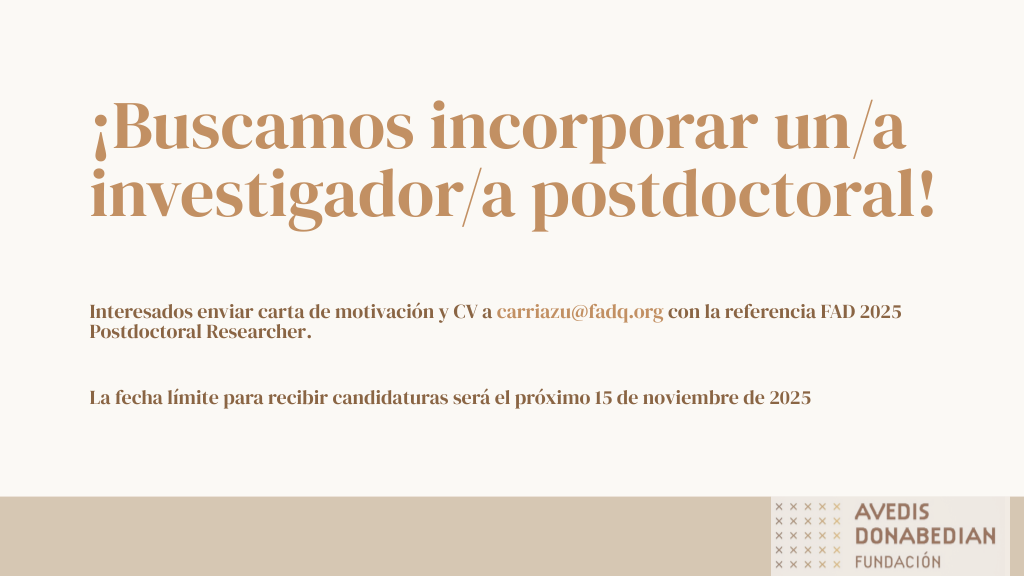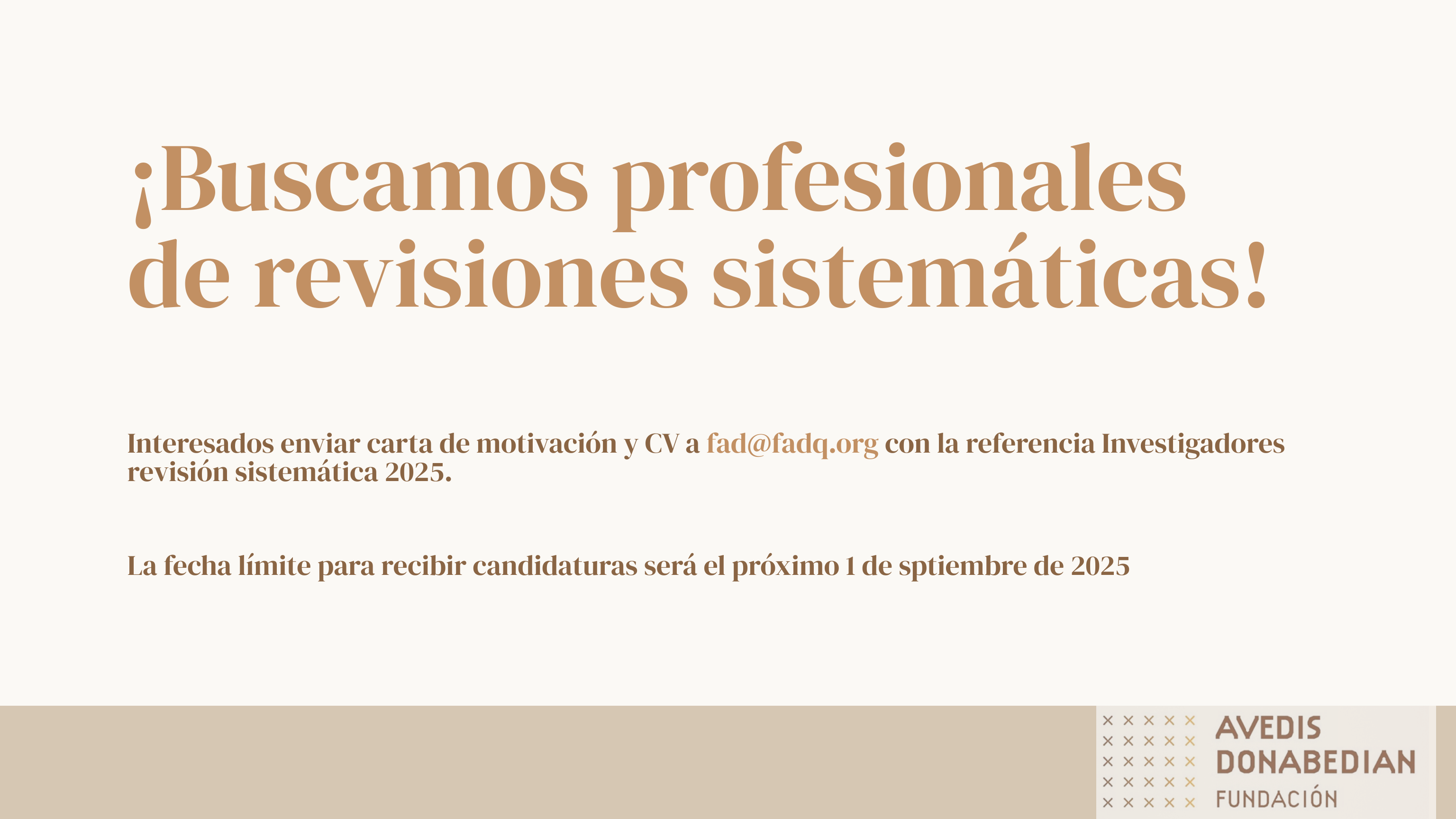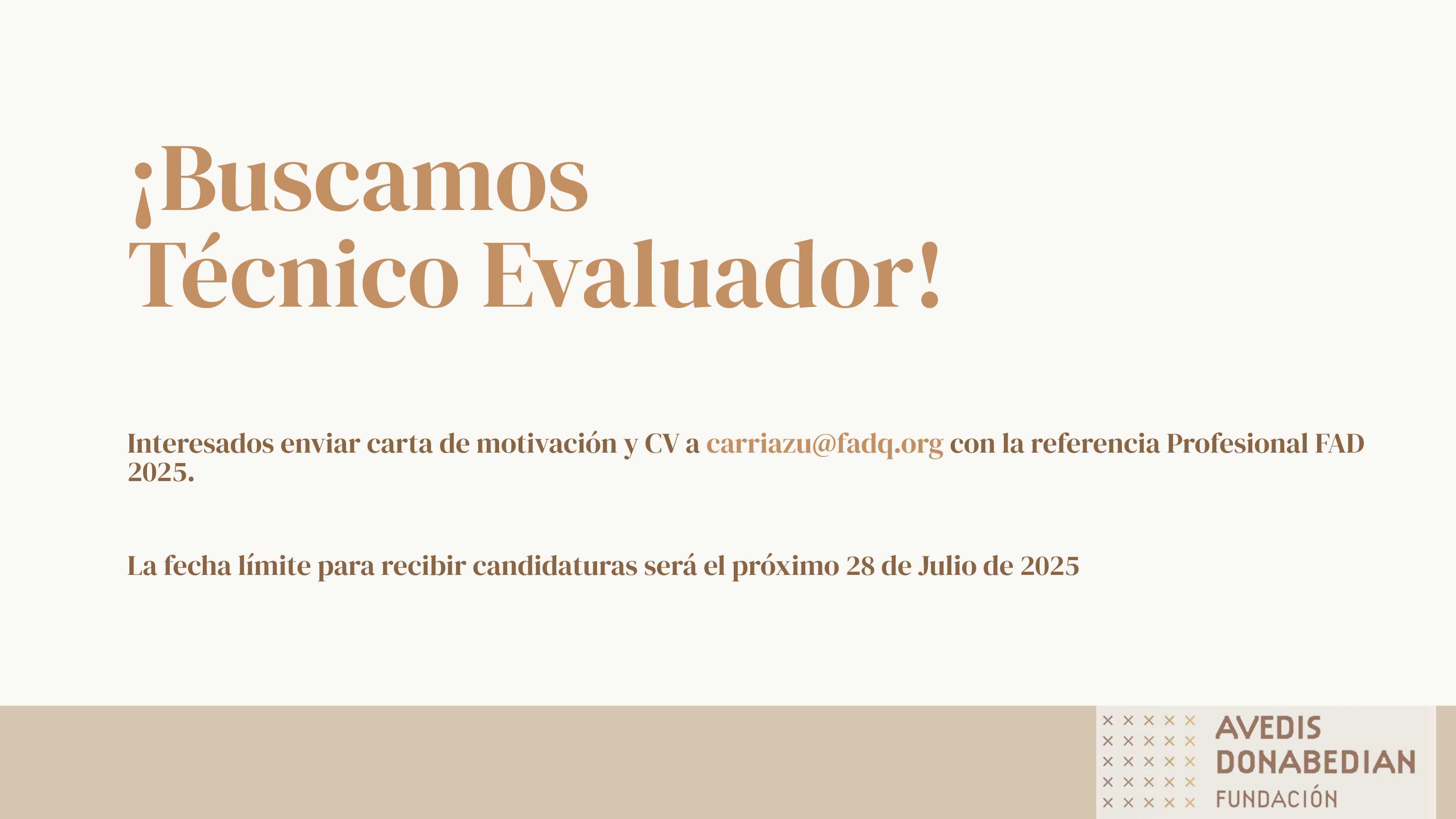Trabajamos para la mejora de la calidad en el ámbito de la salud y social
La Fundación Avedis Donabedian (FAD), adscrita a la Universidad Autónoma de Barcelona desde 1989, tiene como objetivo principal mejorar la calidad de los servicios sanitarios y sociales, a través de la colaboración con profesionales, centros y entidades públicas y privadas. Nos posicionamos como líderes en la innovación y mejora continua en el sector sanitario y social.
Nuestras áreas
Evaluación y mejora de la calidad
La mejora de la calidad requiere dedicación de recursos y esfuerzos por parte de las organizaciones y profesionales
Nuestros proyectos
A Roadmap OUT of mEdical deserts into supportive Health Workforce initiatives and policies (ROUTE-HWF)
Los desiertos médicos son regiones rurales remotas y áreas urbanas desfavorecidas que carecen de un suministro adecuado de personal médico y servicios de salud....
LIVERATION – Unravelling the impact of Radiofrequency in liver surgery: the key to decrease local recurrence?
El cáncer colorrectal es el tercer tumor más común en hombres y el segundo en mujeres, con una estimación de 1,9 millones de casos nuevos en todo el mundo (450.000 en Europa) y apr...
SinergiAPS: sinergias entre profesionales y pacientes
Proyecto SinergiAPS: Una intervención dirigida a mejorar la seguridad del paciente en centros de salud en España en base a las percepciones y experiencias de los propios pacientes:...
SAFEST
Mejora de la calidad y la seguridad del paciente en la atención quirúrgica a través de la estandarización y armonización de la atención perioperatoria en Europa (SAFEST)...
Proyecto LINK (Learning and Innovation Network)
Proyecto LINK (Learning and Innovation Network)...
Suscríbete a nuestra newsletter y recibe nuestras novedades
¡No te pierdas la oportunidad de estar siempre al día! Suscríbete a nuestra newsletter y recibe las últimas noticias y novedades directamente en tu bandeja de entrada
Últimas noticias






Contacto
Por favor rellena este formulario para hacernos llegar tu mensaje
- Address
- Provença 293, pral.
08037 Barcelona – España - Telephone
- Tel: (34) 93 207 66 08
- fad@fadq.org





